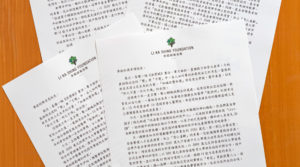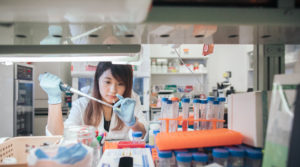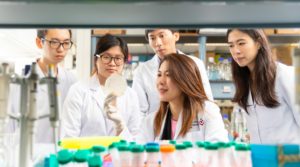“Within Eternity, Time Passes Within Time, There Is Change”
(16 September 2020, Hong Kong) The Li Ka Shing Foundation (LKSF) announced today a grant totalling HK$170 million to four local universities simultaneously to boost Hong Kong’s competitiveness.
Citing a quote from Ode on the Red Cliffs by Su Dongpo, LKSF Chairman Mr Li Ka-shing penned his intent to the leadership of the medical faculties of the University of Hong Kong (HKU) and the Chinese University of Hong Kong (CUHK), as well as the Presidents of the Hong Kong University of Science and Technology (HKUST), and the Education University of Hong Kong (EdUHK) in hopes of fostering innovation in the ever changing environment and spearhead efforts to advance education excellence amidst uncertainties.
The latest grant of HK$170 million will support the following projects:
- HK$100 million to establish the Cryo-electron Microscope Unit at the HKU Li Ka Shing Faculty of Medicine. Transmission electron cryomicroscopy (Cryo-EM) was awarded the Nobel Prize in Chemistry in 2017 and ushers in a new era for biochemistry. Cryo-EM is a type of transmission electron microscopy that can capture each corner of a cell in atomic detail to advance the basic understanding of life’s chemistry. It also allows researchers to visualise three-dimensional protein complexes, allowing new insights for the development of pharmaceuticals.
- HK$35 million to enhance the core facility at the Li Ka Shing Institute of Health Sciences with the installation of an advanced analytical system and mass spectrometer at the CUHK Faculty of Medicine to build the world’s foremost translational biomedical research platform. By staying at the forefront of technical development and utilising these state-of-the-art equipments, new discoveries can be translated quickly into commercial applications to benefit society.
- HK$30 million to support the launch of a new Synthetic Biology initiative at HKUST which is a multidisciplinary effort calling on biologists, chemists, engineers, software developers, and others to collaborate on finding ways to understand how genetic parts work together, and then to combine them to produce useful applications to address today’s global challenges. By harnessing the power of nature to solve problems in medicine, manufacturing, sustainability and agriculture, these disruptive technologies are key to driving the bio-economy of the future.
- HK$5 million to foster cooperation between EdUHK and local designers, introducing innovative AI educational solutions to enhance student learning and quality teaching. EdUHK will adopt Hong Kong’s first AI educational solution, offered by Kneron, the world’s top three provider of edge AI solutions. Kneron’s software and hardware learning solutions will inculcate students with system thinking, symbol application, and scientific and technological information. Kneron’s solution is recognised by the Princeton University, United States and University of California, Los Angeles.
It is a landmark moment for the Li Ka Shing Foundation to donate to all four universities at the same time. Grants have been disbursed to the four institutes while the letters are enroute. Mr Li underscored that Hong Kong medics, scientists, researchers, and scholars are talented and compassionate. He is confident that they will continue to serve Hong Kong in a professional manner. He added that biomedical technology holds the key to all life challenges, and AI applications will scale new heights in human capabilities. Traditional generic programmes cannot face up to competition in the long run, and therefore the development of bio-economy and AI solutions in Hong Kong should commence immediately.
With the help of technology, Mr Li stands with these four universities in their quest to strengthen Hong Kong’s capabilities and competitiveness to “build inner strength and turn dreams into reality.”
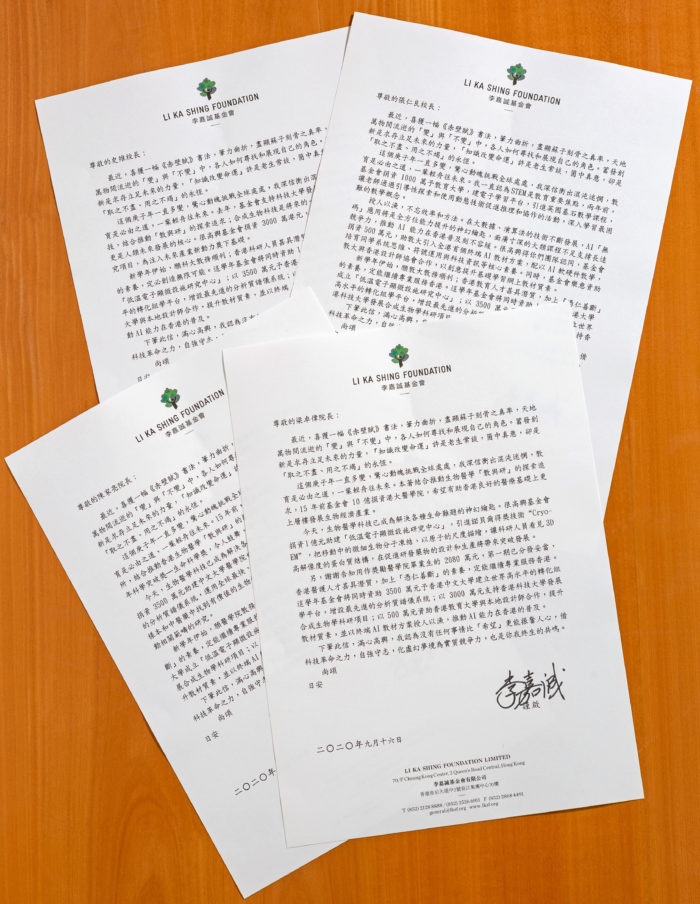
The Li Ka Shing Foundation has for the first time donated HK$170 million to four universities simultaneously to boost Hong Kong’s competitiveness.
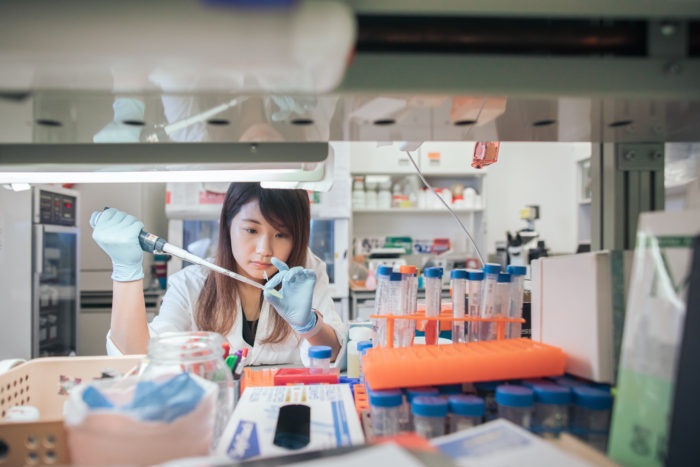
Among the donation HK$100 million will support the establishment of the Cryo-electron Microscope Unit at the HKU Li Ka Shing Faculty of Medicine, allowing new insights for the development of pharmaceuticals.
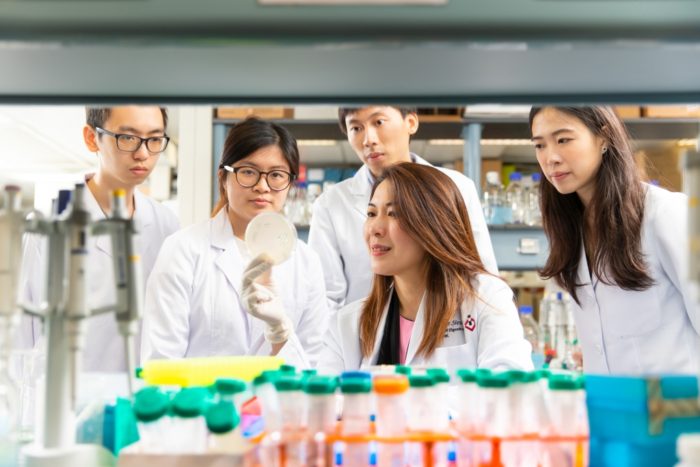
The grant of HK$35 million to CUHK will help the university install an advanced analytical system and mass spectrometer.

